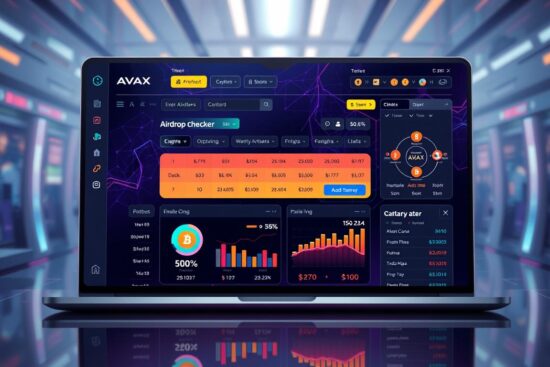
Seed Airdrop Listing Date: Have you ever wondered about how seed airdrops can influence the listing date of a new cryptocurrency or token? This intriguing concept has been gaining traction in the ever-evolving world of digital assets, and understanding it can give you valuable insights into the potential success of a crypto project. In this article, you’ll uncover the depth and breadth of seed airdrops, their purpose, benefits, and most importantly, their impact on the listing dates of tokens.

What is a Seed Airdrop?
A seed airdrop is an innovative marketing strategy used by cryptocurrency projects where free tokens are distributed to a select group of people or to the wider community. By doing this, projects can increase awareness, create excitement, and attract early supporters. Unlike a public airdrop, a seed airdrop often targets early believers or those in the project’s inner circle to generate buzz and lay a strong foundation for the token’s future.
Claim Crypto Airdrop in 3 Simple Steps!
🌐 Step 1: Visit the Official Airdrop Page.
Dive into the action by heading to the official airdrop page, where all live events are waiting for you. Don’t miss out!
📱 Step 2: Use Your Mobile Wallet
Eligibility checks are mobile-exclusive! Grab your smartphone and ensure you’re using a mobile wallet to participate.
💰 Step 3: Meet the Eligibility Criteria
Make sure your wallet isn’t empty or brand new—only active wallets qualify. If one doesn’t work, don’t worry! Try again with another wallet to secure your rewards.
Purpose of Seed Airdrops
The primary purpose of seed airdrops is to promote an upcoming project by seeding interest among potential investors and users. This method enables projects to distribute a portion of their total token supply without an immediate cost and aims to establish a community that supports the project’s long-term vision.
Benefits for Crypto Projects
Seed airdrops provide a slew of advantages for emerging projects. Firstly, they help in building a user base from the ground up. Providing tokens for free creates an incentive for people to follow the project’s journey and potentially become investors or users of the platform. Secondly, it helps in creating liquidity once the token lists, providing a more stable pricing structure from the get-go. Lastly, seed airdrops engage influencers and key opinion leaders who can leverage their networks to amplify the project’s reach.
How Does a Seed Airdrop Work?
The process of conducting a seed airdrop is orderly yet flexible, allowing projects to adapt it according to their specific needs. Generally, the steps involve deciding the eligibility criteria, determining the token quantity for distribution, setting up the distribution method, and finally, executing the airdrop.
Eligibility Criteria
Determining who gets the tokens is a crucial step. Projects often choose early supporters, investors in previous projects, or participants in promotional activities. By targeting individuals who are likely to provide value in terms of attention or influence, projects can maximize the effectiveness of their airdrop.
Token Quantity and Distribution
The next step involves setting the quantity of tokens to distribute, a balance between generating interest and maintaining value. Distributing too many tokens can dilute value whereas too few can limit engagement. Projects also need to establish the distribution method, whether via direct transfers to recipients’ wallets or through centralized platforms.
Listing Date: What You Need to Know
The listing date of a cryptocurrency or token is the official day it becomes available for trading on crypto exchanges. This moment is crucial as it determines the exposure and accessibility a token will have in the broader market. Understanding the complexities around a listing date sets the stage for evaluating how seed airdrops impact this juncture.
Market Valuation
Upon listing, a token’s market value is determined based on supply, demand, and overall market sentiment. This valuation can be dramatically influenced by the presence and quality of a prior seed airdrop. Hence, projects meticulously plan their listing strategy to optimize token performance with the momentum generated by the airdrop.
Exchange Selection
The choice of exchanges for initial listing affects liquidity, trading volume, and exposure. Top-tier exchanges offer the highest visibility and often require established interest and demand—something that a successfully executed seed airdrop can provide.
The Impact of Seed Airdrop on Listing Date
Seed airdrops can significantly affect various aspects of a token’s listing, from timing to initial market reactions. Understanding these impacts helps stakeholders set realistic expectations and tailor strategies accordingly.
Timing the Listing
Strategically timing the listing in relation to a seed airdrop is fundamental. A well-timed listing ensures that the hype from the airdrop is still fresh, facilitating a seamless transition into trading while maintaining public interest. Projects often align listing dates soon after the airdrop to capture and capitalize on the momentum.
Market Sentiment
Positive market sentiment is pivotal when launching a new token. Seed airdrops instill a sense of community and ownership among early recipients, fostering optimism and active participation around the listing date—conditions that often lead to more favorable initial trading conditions.
Trading Volume and Price Stability
Seed airdrops can contribute to higher trading volumes as a multitude of recipients have immediate access to the tokens. Higher volumes typically translate to more stable pricing and reduced volatility in the days following a token’s debut on exchanges.

Factors Influencing Airdrop Success
The impact of seed airdrops on the listing date is not solely dependent on quantity and distribution; rather, a combination of factors dictates their success or shortcomings.
Contribution of Community Engagement
An engaged community is instrumental in the success of a seed airdrop. Community members, who are often the first to receive tokens, become project advocates, spreading awareness and encouraging broader participation. Keeping the community informed and involved sustains momentum, especially when transitioning from airdrop to listing.
Aligning Incentives
The alignment of incentives between the airdrop recipients and the project ensures sustained interest and participation. Recipients who see long-term potential in holding and utilizing the tokens help stabilize the token price, acting as a foundation upon which further adoption can be built.
Strategic Partnerships
Collaborations with influencers, promoting platforms, or even other blockchain projects introduce the token to wider audiences. When structured properly, partnerships can extend an airdrop’s reach beyond its inherent circle, directly impacting the token’s performance upon listing.
Potential Risks and Challenges
While seed airdrops offer numerous benefits, they are not without challenges and potential downsides that must be navigated to achieve the desired outcome.
Regulatory Concerns
Adhering to local and international regulations is paramount when conducting seed airdrops, given their potential classification as securities in certain jurisdictions. Projects must ensure compliance to avoid legal repercussions that could tarnish their reputation and cripple market confidence.
Devaluation Risks
An inherent risk of airdrops is the potential for token devaluation through immediate sell-offs, sometimes referred to as “airdrop dumping.” To mitigate this, projects may implement lock-up periods for distributed tokens to manage supply and stabilize price.

Measuring Seed Airdrop Success
Examining specific metrics helps assess the effectiveness of a seed airdrop, providing valuable insights into its impact on the listing date and project health.
Key Performance Indicators (KPIs)
KPIs such as increased community size, social media engagement, website traffic, and preliminary trading volume post-listing are just a few benchmarks projects can use to gauge success. Analyzing these metrics during and after the airdrop provides a clear picture of its impact.
Case Studies of Successful Seed Airdrops
Studying past successful seed airdrops sheds light on what works and what doesn’t. By evaluating case studies, you’ll uncover patterns and strategies employed by other projects, gaining insight into effective practices worth emulating.
Planning a Successful Seed Airdrop
To leverage seed airdrops as a potent strategic tool, meticulous planning and execution are required. Here’s a look at how projects can effectively harness the power of seed airdrops.
Goal Setting
Defining clear, achievable goals is the first step in planning a successful airdrop. Whether it’s to grow a community, distribute tokens with strategic intent, or maximize trading interest post-listing, outlining these objectives directs all subsequent actions.
Implementation Strategy
An effective implementation strategy ensures all aspects of the seed airdrop are aligned with the initial goals. It involves designing user-centric incentive models, establishing transparent timelines, and selecting appropriate distribution channels to maximize reach and impact.
Monitoring and Adjustments
With variables and uncertainties, flexibility in airdrop strategies is crucial. Continuously monitoring results and making real-time adjustments allows projects to refine their approach and optimize outcomes, ensuring both short-term success and long-term sustainability.

Conclusion
Understanding the impact of seed airdrops on a token’s listing date involves grasping a multi-faceted interplay of factors. By strategically implementing seed airdrops, projects can gain substantial traction, ensuring that their tokens not only enter the market with heightened interest but also sustain value over time. As the digital asset ecosystem continues to expand, exploring the dynamics between airdrops and listing dates not only aids in current market navigation but prepares you for the next wave of emerging opportunities.
















